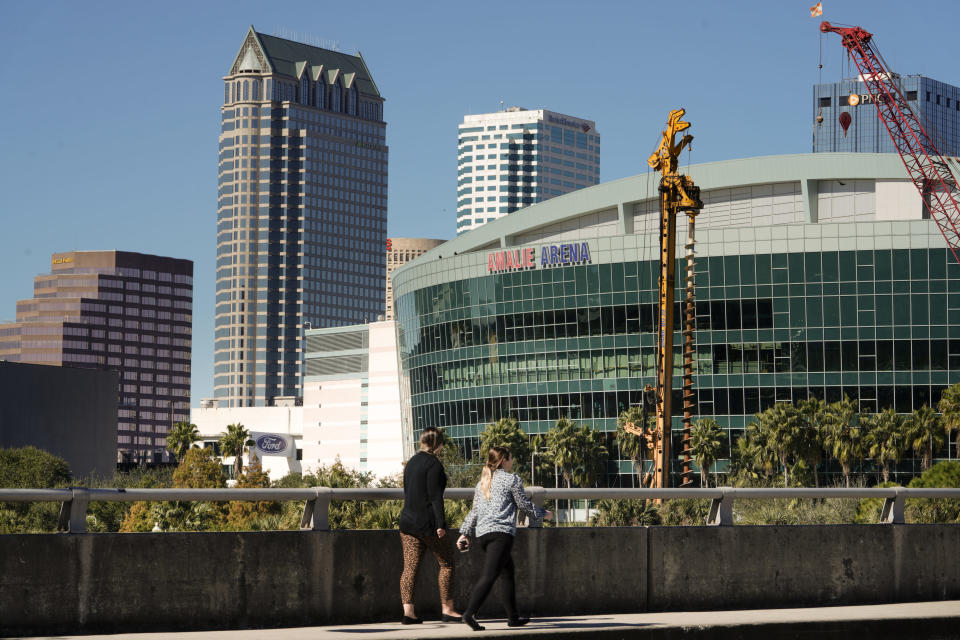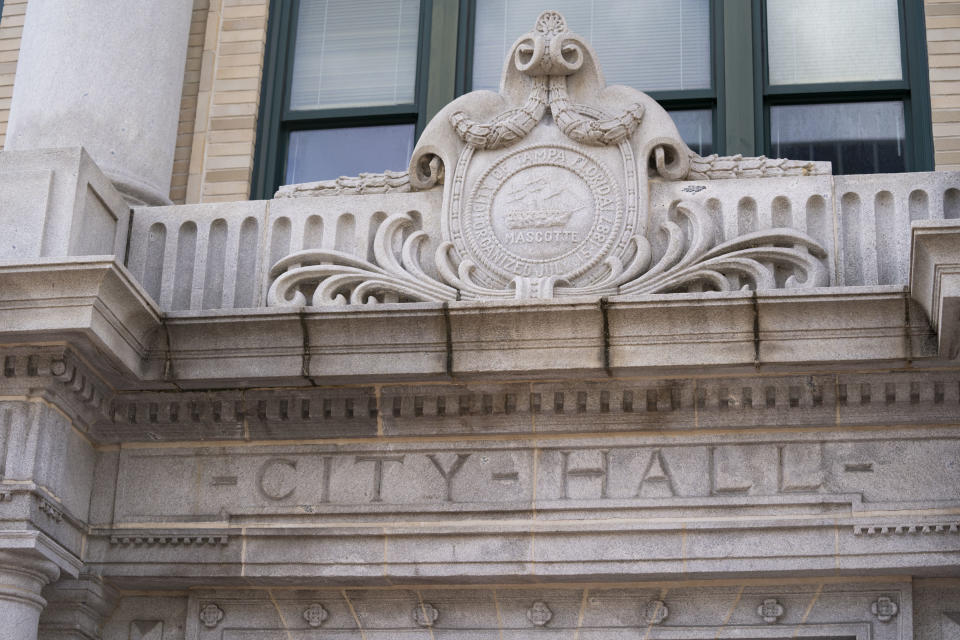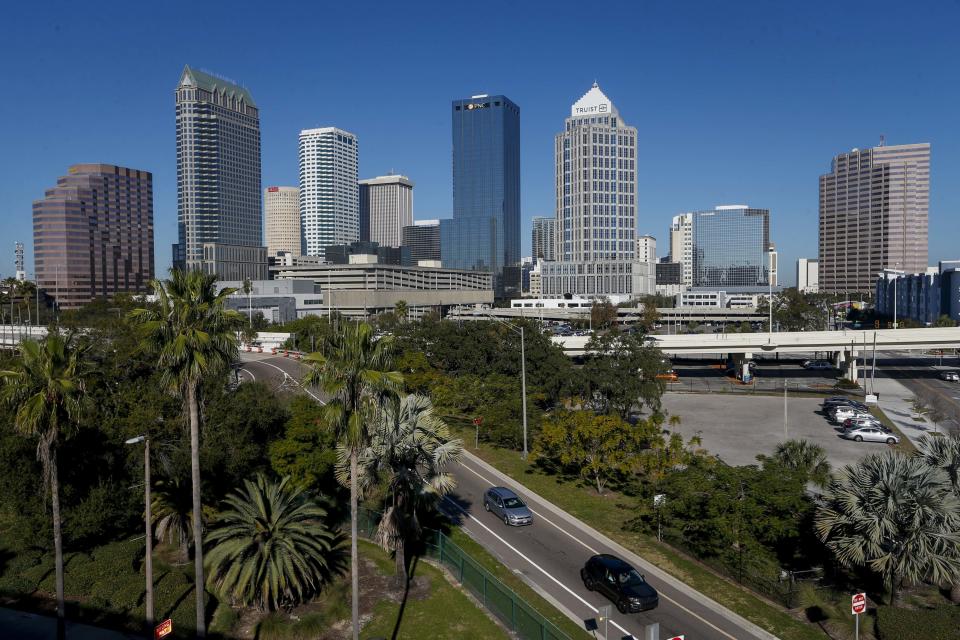A lawsuit against the city of Tampa stirs ‘chaos’ in real estate circles
TAMPA — A deep-pocketed developer wanted to build a hotel in one of the city’s most affluent neighborhoods, drawing staunch opposition from residents who said the project would harm the quality of life in their gated community.
The Tampa City Council voted against the $40 million project twice in 2022. The developer sued the city, a routine response when someone thinks a land-use decision was made incorrectly.
This week, the dispute took a surprising turn, with possible ramifications reaching far beyond the pristine lawns and gates of Harbour Island.
A Hillsborough County circuit judge issued a sweeping ruling that challenges the council’s authority to make those kinds of decisions at all. The ruling has lawyers across the city scratching their heads, stirring uncertainty about how real estate projects will proceed and raising questions that could alter how municipalities statewide handle zoning issues.
“This has sent shock waves through the development community,” Stephen Michelini, a longtime Tampa-based business consultant, said of Judge Anne-Leigh Gaylord Moe’s July 29 order. “It could throw the entire process into turmoil.”
Judge Moe dismissed a request for the decision to be reviewed from the Liberty Group, which was seeking to overturn the council’s denial of a new AC Marriott hotel at 800 S. Harbour Island Blvd. But she did so without weighing the application’s merits.
Instead, Moe wrote, the City Council, as a legislative branch of government, lacks the legal ability to conduct the sort of quasi-judicial hearings used to consider zoning and other land-use matters.
Such hearings have been a bread-and-butter operation for the council — and other local Florida governments — for decades. It’s how the city decides whether a plot of land once zoned for commercial use could become residential, whether to allow more dense development to boost the supply of affordable homes, or even which restaurants can have permits to sell alcohol.
The judge’s order posits that only Mayor Jane Castor or someone appointed by her can legitimately wield such power.
Michelini, the consultant who often works with clients with business before the council, said the ruling has catapulted the industry into unstable territory.
“How is this city going to resolve this chaos?” he said.
The city attorney’s office declined to comment on ongoing litigation. Liberty Group lawyer Jake Cremer said his client is weighing its options.
“Our team is still digesting what this means,” he said.
Liberty Group, helmed by Punit Shah, bought the site, which currently houses a one-story office, in 2016 for $1.75 million, according to property records. Shah envisioned a 15-story, 180-room hotel in walking distance to Amalie Arena and the Tampa Convention Center.
He shrank the proposal to 12 stories with 150 rooms in response to community pushback. Still, in May 2022, Harbour Island residents packed Old City Hall, saying the hotel would exacerbate traffic problems and bring hoards to the brink of their gated community, where waterfront homes can list for millions of dollars.
The council denied the rezoning and land-use requests.
After filing a lawsuit against the city and going through mediation, Liberty Group presented a second proposal seven months later: A 10-story, 145-room hotel. Parking spaces were reduced by 60%. A rooftop bar was removed.
City staff, again, recommended approval. The council denied the project on a 4-3 vote.
“The hotel would have created desperately needed jobs in our community, built tourism, and boosted the local economy,” Shah said in a statement after the vote.
Two bridges link Harbour Island to downtown, but the enclave prides itself on being, according to one community website, “worlds away from the stresses of day-to-day life.” The southern end is gated, with only residents and registered guests allowed.
The northern end is a mix of residential and commercial property. Shah’s site sits just north of the gated community.
“Our fundamental concern in this case was that the City Council made their decision based on a popularity contest,” said Cremer, Liberty Group’s lawyer. “But the law says the council has to look at the law and the code.”
In its lawsuit, Liberty Group didn’t question the council’s ability to wield quasi-judicial power, just whether the case had been correctly decided.
In a quasi-judicial hearing, council members take on a judgelike role, applying law and policy to a particular situation. Subjective preferences are supposed to be disregarded; their decision must be rooted in evidence. Members of the public can participate, though speakers must swear to tell the truth.
Moe wrote that the state constitution does not expressly provide such authority to the Tampa City Council. Plus, the city charter grants the council “legislative power only.”
Her 33-page ruling, which applies only to Hillsborough County as she is judge in the 13th circuit, poses questions relevant across the state.
“A beautifully-written Constitution is not what makes us the envy of the world,” she writes. “We are the envy of the world because we demand that our government must work the way it was designed in the Constitution.”
Ethan Loeb, another attorney representing Liberty Group, said he believes the decision is a game-changer that allows the project to move forward as originally planned: A 150-foot-tall hotel.
“This gives him the opportunity to do what he always wanted with the property,” Loeb said of Shah.
Earlier this summer, Liberty Group filed a new application to erect a 14-story building with 162 apartments, according to city records. They filed using the state’s Live Local Act, which allows affordable housing developments to bypass zoning, density and height requirements altogether.



